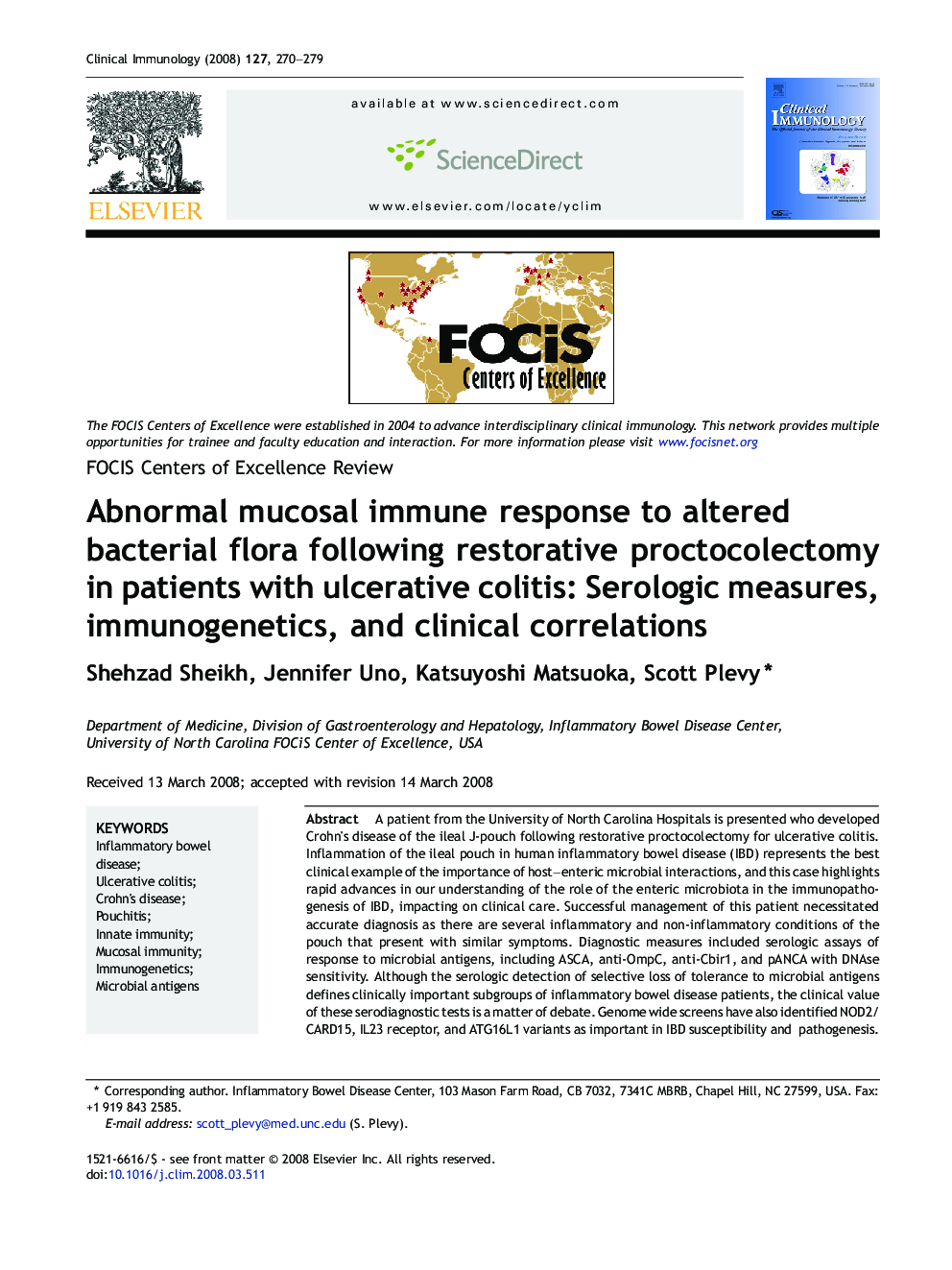| Article ID | Journal | Published Year | Pages | File Type |
|---|---|---|---|---|
| 3258172 | Clinical Immunology | 2008 | 10 Pages |
A patient from the University of North Carolina Hospitals is presented who developed Crohn's disease of the ileal J-pouch following restorative proctocolectomy for ulcerative colitis. Inflammation of the ileal pouch in human inflammatory bowel disease (IBD) represents the best clinical example of the importance of host–enteric microbial interactions, and this case highlights rapid advances in our understanding of the role of the enteric microbiota in the immunopathogenesis of IBD, impacting on clinical care. Successful management of this patient necessitated accurate diagnosis as there are several inflammatory and non-inflammatory conditions of the pouch that present with similar symptoms. Diagnostic measures included serologic assays of response to microbial antigens, including ASCA, anti-OmpC, anti-Cbir1, and pANCA with DNAse sensitivity. Although the serologic detection of selective loss of tolerance to microbial antigens defines clinically important subgroups of inflammatory bowel disease patients, the clinical value of these serodiagnostic tests is a matter of debate. Genome wide screens have also identified NOD2/CARD15, IL23 receptor, and ATG16L1 variants as important in IBD susceptibility and pathogenesis. These genetic associations have also provided new insights into the importance of interaction between the host and microbes in the pathogenesis of IBD, but the precise mechanisms by which these gene variants contribute to disease development remain to be determined. Genetic associations and serological markers will ultimately be used to define important clinical subgroups of disease, predict natural history, and ultimately identify patient populations for early therapeutic intervention.
